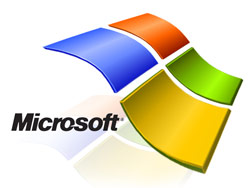Two interesting announcements have been made by Redmond-based software giant Microsoft this week. The first announcement refers to Windows XP Mode, the feature included in Windows 7 (just the Professional, Enterprise and Ultimate version) that creates a virtual Windows XP environment on which the user can run older apps. The big news is that XP Mode has reached the RTM (Release To Manufacturing) milestone in its development process. The final version of XP Mode is expected to be released on the same date that Windows 7 is due to hit the market: October 22nd.
Windows Communications Manager on the Windows Client Communications Team, Brandon LeBlanc, comments: “We’re happy to announce that Windows XP Mode has RTM’d today. We expect to make the final release of Windows XP Mode available via the Microsoft Download Center on October 22nd. OEMs will be able to offer Windows XP Mode on their PCs based on their manufacturing schedules. Windows XP Mode is designed to provide small business and mid-sized businesses running Windows 7 Professional (or higher) the ability to run Windows XP productivity applications that may not be natively compatible with Windows 7.”
Windows XP Mode and Windows Virtual PC reached the previous milestone in their development process, mainly RC (Release Candidate) back in August. At the time, XP Mode had these features to boast about:
- Attach USB devices to Windows XP mode apps direction from the Windows 7 taskbar.
- Access Windows XP Mode apps via a jump-list.
- Specify where Windows XP Mode differencing disk files are to be stored.
- disable drive sharing between Windows XP Mode and Windows 7.
- New user tutorial.
The thing with XP Mode is that it is meant to provide an added layer of compatibility between Windows 7 and apps that worked just fine on Windows XP. Microsoft expects these apps to work properly in Windows 7, but just in case they do not, XP Mode comes in and lends a helping hand.
Make sure you do not confuse Windows XP Mode with MED-V. Check out this article to cast aside any uncertainties. And don’t forget that XP Mode needs protection against security threats also.
Brandon LeBlanc again: “Windows XP Mode is designed to provide small business and mid-sized businesses running Windows 7 Professional (or higher) the ability to run Windows XP productivity applications that may not be natively compatible with Windows 7. We expect many Windows XP applications to be compatible Windows 7 however Windows XP Mode is meant to serve as an added safety net so small and mid-sized businesses can migrate and run Windows 7 without any road blocks. Windows 7 Professional is designed to meet the needs of small and mid-sized businesses.
Moving on, here is the second Microsoft-related announcement making the rounds online: the company will allow OEMs (Original Equipment Manufacturers) and Microsoft partners to install any of the 6 versions of Windows 7 (Starter, Home Basic, Home Premium, Professional, and Ultimate) on the netbooks they market. Previously it was believed that netbooks will get stuck with Windows 7 Starter, the Windows 7 version that comes with the least number of features.
Windows Communications Manager on the Windows Client Communications Team, Brandon LeBlanc, comments: “We’re happy to announce that Windows XP Mode has RTM’d today. We expect to make the final release of Windows XP Mode available via the Microsoft Download Center on October 22nd. OEMs will be able to offer Windows XP Mode on their PCs based on their manufacturing schedules. Windows XP Mode is designed to provide small business and mid-sized businesses running Windows 7 Professional (or higher) the ability to run Windows XP productivity applications that may not be natively compatible with Windows 7.”
Windows XP Mode and Windows Virtual PC reached the previous milestone in their development process, mainly RC (Release Candidate) back in August. At the time, XP Mode had these features to boast about:
- Attach USB devices to Windows XP mode apps direction from the Windows 7 taskbar.
- Access Windows XP Mode apps via a jump-list.
- Specify where Windows XP Mode differencing disk files are to be stored.
- disable drive sharing between Windows XP Mode and Windows 7.
- New user tutorial.
The thing with XP Mode is that it is meant to provide an added layer of compatibility between Windows 7 and apps that worked just fine on Windows XP. Microsoft expects these apps to work properly in Windows 7, but just in case they do not, XP Mode comes in and lends a helping hand.
Make sure you do not confuse Windows XP Mode with MED-V. Check out this article to cast aside any uncertainties. And don’t forget that XP Mode needs protection against security threats also.
Brandon LeBlanc again: “Windows XP Mode is designed to provide small business and mid-sized businesses running Windows 7 Professional (or higher) the ability to run Windows XP productivity applications that may not be natively compatible with Windows 7. We expect many Windows XP applications to be compatible Windows 7 however Windows XP Mode is meant to serve as an added safety net so small and mid-sized businesses can migrate and run Windows 7 without any road blocks. Windows 7 Professional is designed to meet the needs of small and mid-sized businesses.
Moving on, here is the second Microsoft-related announcement making the rounds online: the company will allow OEMs (Original Equipment Manufacturers) and Microsoft partners to install any of the 6 versions of Windows 7 (Starter, Home Basic, Home Premium, Professional, and Ultimate) on the netbooks they market. Previously it was believed that netbooks will get stuck with Windows 7 Starter, the Windows 7 version that comes with the least number of features.

























